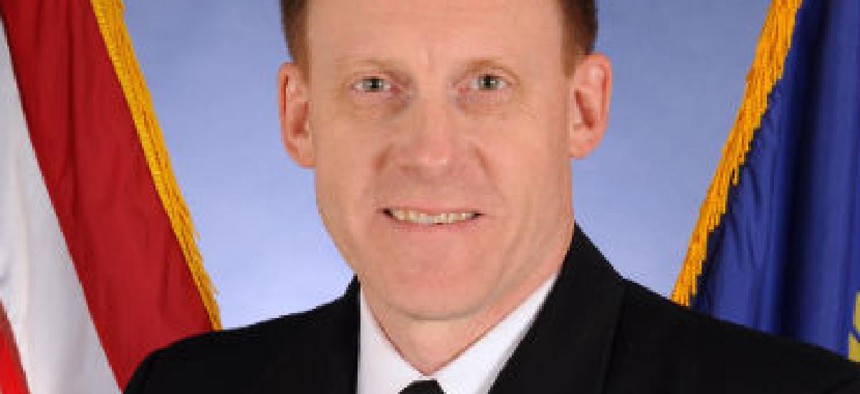NSA director fears shutdown effect on employee morale

Even the prospect of another government shutdown has the head of the National Security Agency and U.S. Cyber Command worried that more of his workforce will decamp for the private sector.

Adm. Michael Rogers warned lawmakers that his cyber workforce could “easily get jobs on the outside."
The prospect of another government shutdown has left employees at the National Security Agency and U.S. Cyber Command shaking their heads and their boss worrying that political dysfunction will spur more of his workforce to leave for the private sector.
Adm. Michael Rogers, who heads both the NSA and Cyber Command, told the Senate Intelligence Committee on Sept. 24 that his workforce could “easily get jobs on the outside and earn significantly more amounts of money,” and warned that a government shutdown next week could harm morale at Fort Meade. Lawmakers and the president have until Oct. 1 to reach a budget deal to avoid a shutdown, although the surprise resignation announcement of Speaker John Boehner (R-Ohio) might smooth that process.
Rogers’ 90-minute appearance before the committee covered an array of topics, from the status of the NSA’s collection of bulk data, to, uncomfortably for the admiral, former Secretary of State Hillary Clinton’s use of a private email server for official government business.
Arkansas Republican Tom Cotton asked Rogers how he would respond if a current cabinet member asked the NSA director about the wisdom of setting up a private email server for official business.
“You really want to drag me into this one, sir?” Rogers said laughing. The admiral said the hypothetical cabinet member should follow the regulations set forth by his or her agency.
Cotton then asked Rogers how he would react if he learned that the Russian or Iranian foreign minister was using a private email server for official use. “From a foreign intelligence perspective, that represents opportunity,” Rogers replied.
The NSA director was visibly more at ease answering questions about U.S. vulnerabilities in cyberspace. Noting that Rogers’ predecessor, Gen. Keith Alexander, had given the country a grade of three out of 10 in its ability to defend against cyberattacks on critical infrastructure, Sen. Susan Collins (R-Maine) asked Rogers for his rating. “We’re probably at a five or six,” depending on the sector, Rogers said. “That’s not where we need to be, clearly.”
Fort Meade makeover
While the Central Intelligence Agency is undergoing a makeover to adapt to the digital age, Rogers revealed at the hearing that the NSA is planning its own overhaul.
After hundreds of recommendations for the reorganization came in, Rogers said he asked advisers to narrow the scope to focus on three main areas, which he characterized vaguely as: how the agency treats the 40 percent of its workforce that is military personnel, “to think a little more broadly” about the agency’s role in cyberspace, and to reconsider how the agency should be structured.
Rogers told senators that he will likely review a draft of the final recommendations for the reorganization this weekend and noted that the last big overhaul of the agency took place more than 15 years ago. “As an enterprise, we have had to reinvent ourselves before and we will do so again,” the admiral said.


